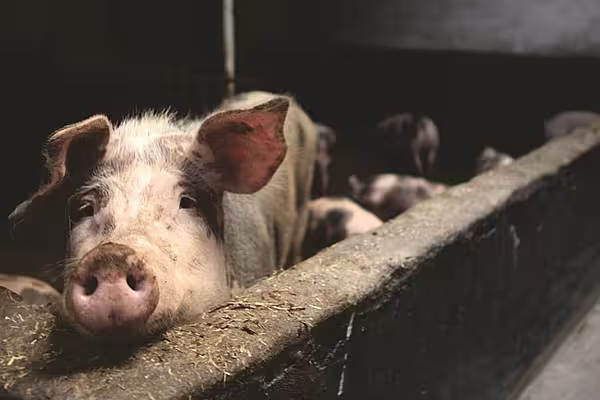A German abattoir hit by a coronavirus outbreak has been ordered to close, authorities said, continuing COVID-19 difficulties in Germany's meatpacking industry.
The Weidemark plant in Soegel in north Germany, owned by the giant Tönnies group, must end slaughtering on Friday, complete packing on Sunday and then close, initially for 22 days, the Emsland regional authority said. Some 112 of its 2,000 or so workers have tested positive for the new coronavirus.
Tönnies said it had taken a series of measures to prevent new infection in past days in close agreement with the Emsland authorities, and regarded the order to shut the plant as 'not proportionate'. It said it would take legal action.
Coronavirus outbreaks at several slaughterhouses in Germany have forced meatpacking plants to review working systems amid global concern over airborne transmission risks.
Migrant Workers
Germany's meatpacking sector has been criticised this year for the widespread use of sub-contracted migrant workers from eastern Europe, as cramped accommodation and poor oversight were blamed for accelerating coronavirus outbreaks.
A bill is making its way through parliament that would compel meatpackers to employ staff directly in industrial abattoirs, rather than sub-contracting.
Tönnies' meatpacking plant in Rheda-Wiedenbrueck closed for a month in June after about 1,500 workers tested positive for coronavirus.
The measures adopted at Weidemark include workers wearing high-grade FFP-2 protective masks and being tested for coronavirus daily. Tönnies said these steps were already having an effect.











